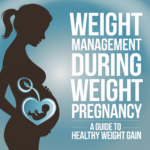Nutrition during pregnancy plays a crucial role in ensuring the health and development of both the mother and the baby. A well-balanced diet, combined with the right supplements, can help support the baby’s growth while maintaining the mother’s overall well-being.
In this blog post, we will explore the foods pregnant women should prioritize, foods to avoid for safety, and the essential supplements that contribute to a healthy pregnancy. Let’s dive in!
Why Nutrition Matters During Pregnancy
When a woman becomes pregnant, her body undergoes a series of physical and hormonal changes that increase her nutritional needs. The developing baby depends on the mother’s diet for essential nutrients that help form the brain, bones, organs, and tissues. A poor diet can increase the risk of birth defects, low birth weight, and pregnancy complications like gestational diabetes and preeclampsia.
Eating the right foods, combined with proper supplementation, provides the baby with the nutrients needed to develop normally and helps the mother maintain her health throughout pregnancy.
What Foods to Eat During Pregnancy
A healthy pregnancy diet should be rich in essential nutrients, vitamins, and minerals. Below are the key food groups and nutrients that are important for expecting mothers.
1. Fruits and Vegetables
Fruits and vegetables are packed with vitamins, minerals, fiber, and antioxidants. Pregnant women should aim for a variety of colorful fruits and vegetables daily.
- Folate-rich vegetables: Leafy greens like spinach, kale, and broccoli are high in folate, which is critical for preventing neural tube defects in the baby.
- Vitamin C-rich fruits: Citrus fruits, strawberries, and bell peppers are excellent sources of vitamin C, which supports immune health and aids in iron absorption.
- Fiber-rich options: Vegetables like carrots, cucumbers, and whole fruits help maintain digestive health, preventing common pregnancy issues like constipation.


2. Whole Grains
Whole grains are a great source of complex carbohydrates, fiber, and essential nutrients like B vitamins, iron, and magnesium. They provide lasting energy and promote healthy digestion.
- Whole wheat bread, brown rice, oats, and quinoa are excellent choices to help keep blood sugar levels stable and provide sustained energy throughout the day.
- Fortified cereals: Some whole-grain cereals are fortified with additional vitamins and minerals, such as folic acid and iron, which are essential during pregnancy.
3. Lean Proteins
Protein is vital for the baby’s growth and the development of tissues, organs, and muscles. Pregnant women should aim to consume lean sources of protein daily.
- Lean meats like chicken, turkey, and lean beef provide essential amino acids needed for growth.
- Plant-based proteins: Lentils, beans, chickpeas, and tofu are excellent options for vegetarians or those looking to reduce their meat intake.
- Eggs: Eggs are a rich source of protein and choline, which supports brain development in the baby.
- Fish: Fish like salmon, sardines, and trout are rich in omega-3 fatty acids, which are important for brain development, but it’s essential to avoid fish high in mercury (more on this below).
4. Dairy Products
Dairy products are an important source of calcium, which is essential for building the baby’s bones and teeth.
- Milk, yogurt, and cheese: These provide calcium, vitamin D, and protein, all of which contribute to the healthy development of the baby’s skeletal system.
- Greek yogurt: Higher in protein than regular yogurt, Greek yogurt is also rich in probiotics that help maintain digestive health.
5. Healthy Fats
Healthy fats are essential for the baby’s brain development and for providing the mother with lasting energy. Focus on unsaturated fats from natural sources.
- Avocados, nuts, seeds, and olive oil are excellent sources of heart-healthy fats.
- Omega-3-rich foods: Fatty fish, flaxseeds, chia seeds, and walnuts contain omega-3 fatty acids, crucial for the development of the baby’s brain and eyes.
Foods to Avoid During Pregnancy
While many foods are beneficial for pregnant women, some should be avoided due to the risk of foodborne illness, contamination, or potential harm to the baby’s development.
1. Raw or Undercooked Meat, Poultry, and Seafood
Raw or undercooked meats may contain harmful bacteria like Listeria or Salmonella, which can lead to severe infections and complications during pregnancy.
- Avoid raw sushi, rare or medium-rare steaks, and undercooked poultry. Make sure all meats are cooked thoroughly to reduce the risk of foodborne illness.
- Deli meats and hot dogs should also be avoided unless reheated to steaming hot.
2. Fish High in Mercury
While fish is an excellent source of omega-3 fatty acids, certain species contain high levels of mercury, which can affect the baby’s brain and nervous system development.
- Avoid fish like shark, swordfish, king mackerel, and tilefish. Instead, opt for lower-mercury fish like salmon, sardines, and canned light tuna (limit albacore tuna to no more than once per week).
3. Unpasteurized Dairy Products
Unpasteurized dairy products like soft cheeses (e.g., brie, feta, blue cheese) can contain harmful bacteria such as Listeria, which may lead to serious infections.
- Stick to pasteurized dairy products like regular cheese, yogurt, and milk.
4. Raw Eggs
Raw or undercooked eggs can harbor Salmonella, a bacterium that can cause food poisoning.
- Avoid raw cookie dough, homemade mayonnaise, and sauces like hollandaise that use raw eggs unless pasteurized eggs are used.
5. Caffeine
While moderate caffeine consumption is generally considered safe, excessive caffeine intake during pregnancy has been linked to an increased risk of miscarriage and low birth weight.
- Limit caffeine intake to 200 mg per day, which is equivalent to one 12-ounce cup of coffee. Also, keep an eye on hidden sources of caffeine, such as tea, chocolate, and soft drinks.
6. Alcohol
No amount of alcohol has been proven safe during pregnancy. Alcohol consumption can lead to fetal alcohol spectrum disorders (FASDs), which can cause physical, mental, and behavioral disabilities in the child.
- Completely avoid alcohol throughout pregnancy to eliminate the risk of FASDs.
Proper Supplementation During Pregnancy
Even with a well-balanced diet, some nutrients are difficult to obtain in sufficient quantities from food alone. Proper supplementation is important to ensure both the mother and baby are receiving all the necessary nutrients for a healthy pregnancy.
1. Folic Acid
Folic acid, a form of vitamin B9, is one of the most important supplements during pregnancy. It plays a critical role in preventing neural tube defects, which affect the brain and spine.
- The recommended dose is 400-600 micrograms (mcg) daily, starting before conception and continuing throughout pregnancy. Many prenatal vitamins contain this amount.
2. Iron
Iron is necessary for producing extra blood to support the baby’s growth and to prevent anemia in the mother. Iron deficiency can lead to fatigue, weakness, and complications during delivery.
- Pregnant women need about 27 mg of iron per day. While iron is found in lean meats, beans, and fortified cereals, supplementation is often necessary to meet this increased demand.
3. Calcium
Calcium is essential for building the baby’s bones and teeth, as well as maintaining the mother’s bone health.
- Aim for 1,000 mg of calcium daily, either from food sources like dairy products and leafy greens or from a supplement.
4. Vitamin D
Vitamin D helps the body absorb calcium and is important for the baby’s bone development. It also supports the mother’s immune system.
- Pregnant women should aim for 600 IU of vitamin D daily. Some prenatal vitamins include vitamin D, but additional supplementation may be necessary for those with low levels.
5. Omega-3 Fatty Acids (DHA and EPA)
DHA and EPA are types of omega-3 fatty acids that are essential for brain and eye development in the baby. Omega-3s can be obtained through foods like fish, but supplements may be necessary to meet the recommended levels.
- Aim for 200-300 mg of DHA per day, often included in prenatal vitamins or available as a separate fish oil supplement.
Conclusion
Proper nutrition during pregnancy is vital for the health of both mother and baby. By focusing on a balanced diet rich in fruits, vegetables, whole grains, lean proteins, and healthy fats, pregnant women can provide their growing baby with the nutrients they need for optimal development. Additionally, taking the right supplements—such as folic acid, iron, and calcium—can help prevent deficiencies and reduce the risk of complications.
By avoiding certain foods like raw or undercooked meats, fish high in mercury, and unpasteurized dairy, pregnant women can safeguard their health and their baby’s development. Prioritizing good nutrition and making informed choices will contribute to a healthier pregnancy and a positive experience for both mother and baby.


